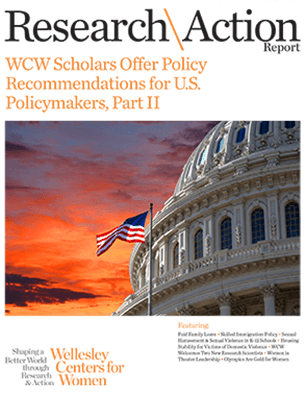Preventing Depression in Women Recovering from Fistula Repair Surgery
Tracy Gladstone, Ph.D. will present “Preventing Depression in Women Recovering from Fistula Repair Surgery in Ethiopia’ during the fifth annual meeting of the Global Consortium for Depression Prevention which will be held at Stanford University, Stanford, CA, USA in December. Obstetric fistula is a serious complication that affects 50,000-100,000 women annually, primarily in low-resourced countries. Although depression is a particular problem among women with fistulae, to date few efforts have addressed risk for depression in this population. Gladstone and her team have developed the COFFEE intervention (CBT with Obstetric Fistula for Education and Empowerment) for women recovering from fistula repair surgery. COFFEE is a modular, group intervention, delivered by nurses, that teaches psychoeducation, behavioral activation, relaxation, problem-solving, cognitive restructuring, and a trauma narrative, as needed. In an open trial of this intervention in Gondar, Ethiopia, five separate COFFEE groups were conducted with 26 women who were enrolled within a week of fistula repair surgery. All women completed baseline self-report questionnaires of depressive symptoms and trauma, participated in group sessions (nurse leaders were supervised via Skype), and were assessed immediately following group participation, and then a three-month follow-up (88.5% retention). Results indicate that depressive symptom scores dropped significantly from baseline (M=12.42) to post-group (M=3.5) and to three-month follow-up (M=1.26, all p’s < .01); likewise, there was a significant drop in trauma scores from baseline (M=2.1) to post-group (M=1.13, p<.01), which was sustained at three-month followup (M=1.12). Next steps include conducting a randomized trial of the COFFEE intervention to determine whether or not it prevents depressive symptoms in women with fistulae, relative to a no-intervention control.
Globalization & Technology in Finland
Sari Pekkala Kerr, Ph.D. spent five weeks at the Labour Institute for Economic Research in Helsinki finalizing “Within and Between Firm Trends in Job Polarization: Role of Globalization and Technology,” an article co-authored with Terhi Maczulskij, Ph.D. and Mika Maliranta, Ph.D., recently published as the Research Institute of the Finnish Economy Working Paper 41. This paper analyzes occupational polarization within and across firms using comprehensive matched employer-employee panel data from Finland. This work is part of a larger research effort funded by the Strategic Research Council in a project titled “Skilled Employees—Successful Labor Market.”
WCW Welcomes Delegates to Wellesley, MA, USA
A delegation from the Cape Verde Pedro Pires Summer Leadership Program, sponsored by the Pedro Pires Institute for Leadership in Cape Verde and hosted by the Pedro Pires Institute for Cape Verdean Studies at Bridgewater State University in Massachusetts, visited the Wellesley Centers for Women (WCW) in June for a site visit and two-hour seminar on accelerating social change through research, presented by Layli Maparyan, Ph.D. Included in the delegation was Clemetina Baptista Furtado, Ph.D., director of the Center for Research and Training in Gender and the Family from the University of Cape Verde, an international partner of WCW.
A delegation of Mandela Washington Fellows, sponsored by President Obama’s Young African Leaders Initiative and hosted by Bridgewater State University, visited WCW in July for a site visit, a seminar on researching women and gender to accelerate social change presented by Maparyan, and presentations by WCW Senior Research Scientists Wendy Robeson, Ed.D. and Linda M. Williams, Ph.D., who presented on early care and education and on gender-based violence, respectively. The fellows, ranging in age from 25-35 and hailing from 16 different African nations, were part of a six-week Public Short Takes


